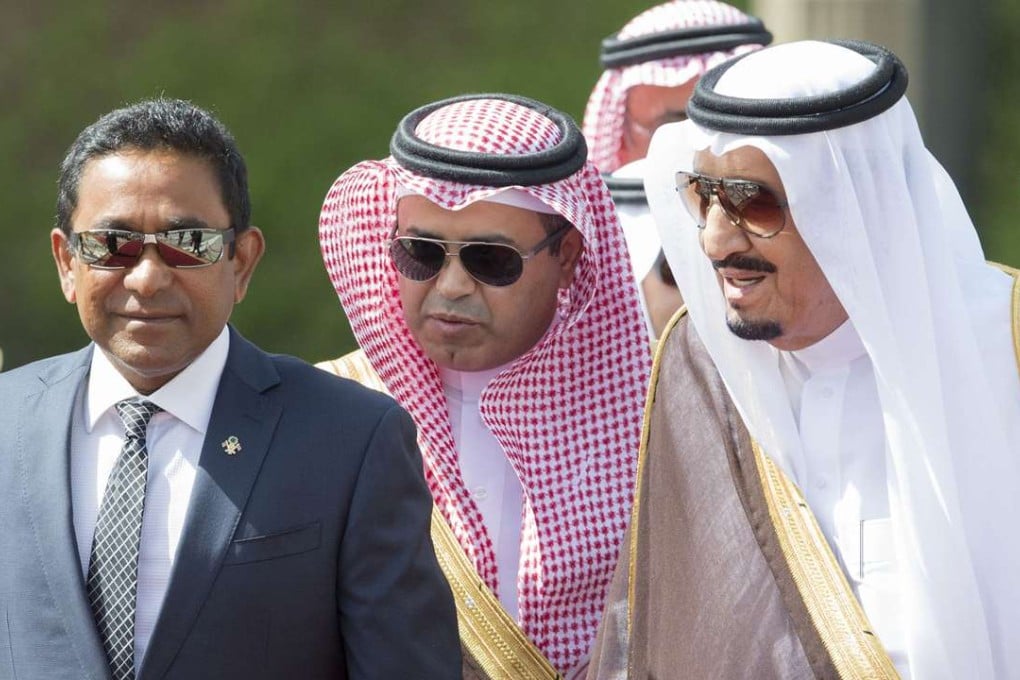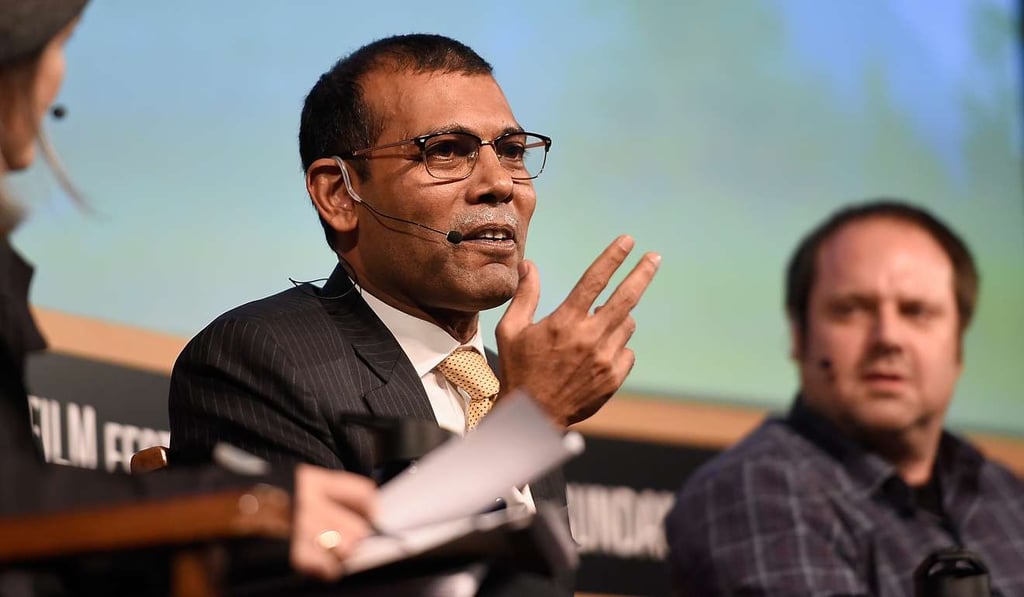Why Saudi Arabia, China and Islamic State are courting the Maldives
As Riyadh and Beijing nurture grandiose plans for military bases, New Delhi fears the archipelago could become a breeding ground for the terrorist group

Saudi King Salman’s stop in the Maldives on his month-long tour of Asia brings into focus how this tiny archipelago – best known for high-end tourism and an existential battle against climate change – has emerged as a key player in a regional struggle for influence.
Both Riyadh and Beijing are currying favour with the strategically located 820km-long chain of Indian Ocean atolls, in efforts analysts believe are aimed at gaining concessions for military bases.
China sees the islands as a node in its “string of pearls” – a row of ports on key trade and oil routes linking the Middle Kingdom to the Middle East – while for Saudi Arabia, the atolls have the added advantage of lying a straight three-hour shot from the coast of regional rival and arch-foe, Iran.
The possible building of Chinese and/or Saudi military bases here would also complement the independent development of both nations’ military outposts in Djibouti, an East African nation on a key energy export route at the mouth of the Red Sea.

Exiled former president of the Maldives, Mohamed Nasheed, who lost power in 2012 following protests over rising commodity prices and the nation’s poor economy, has no doubt regarding Chinese and Saudi intentions.
